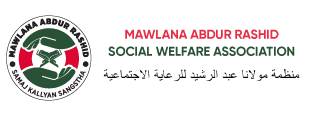Emergency Relief and Rehabilitation Program
The “Emergency Relief and Rehabilitation Program” is a critical initiative designed to respond swiftly and effectively to crises, providing immediate relief and paving the way for long-term recovery. In the face of natural disasters, conflicts, or other emergencies, this program aims to alleviate the suffering of affected communities and support their journey toward rebuilding and resilience.
The program operates on a dual-phase approach:
Emergency Relief:
In the aftermath of a crisis, rapid response is paramount. The program focuses on delivering life-saving aid, including food, clean water, shelter, and medical assistance. Through strategic partnerships and efficient logistics, our goal is to reach affected populations promptly, ensuring that basic needs are met during the critical initial stages of an emergency.
Due to the geographical situation, floods occur in different areas of Bangladesh every year during the monsoon season. The people of low land areas have faced the most extreme flood situation in the past 50 years of Bangladesh. Some areas of the flood-affected zones have been severely damaged. Due to heavy rains falls in monsoon season, the flood situation deteriorates in most of the part of the plain Bangladesh. Mawlana Abdur Rashid Social Welfare Association-MARSA provides the affected people with the reliefs for emergency needs including food and non-food items.
Rehabilitation and Recovery:
While providing immediate relief, the program concurrently initiates plans for the rehabilitation and recovery of affected communities. This involves rebuilding infrastructure, restoring livelihoods, and addressing long-term social and economic impacts. By engaging in comprehensive rehabilitation efforts, we aim to empower communities to regain self-sufficiency and resilience.
Key components of the program include:Needs Assessment: Conducting thorough assessments to understand the specific needs and vulnerabilities of affected populations, guiding the targeted delivery of assistance.
Shelter and Infrastructure Rehabilitation: Rebuilding homes, schools, and essential infrastructure to create a foundation for community recovery.
Livelihood Support: Implementing programs to restore and enhance livelihoods, promoting economic stability and self-sufficiency.
Healthcare and Psychosocial Support: Establishing healthcare services and providing psychosocial support to address the physical and mental well-being of affected individuals.
Education Initiatives: Rebuilding and improving educational facilities, ensuring continuity in learning for affected children and youth.
Community Engagement: Involving local communities in decision-making processes, fostering a sense of ownership and empowerment in the recovery process.
Partnerships and Collaboration: Collaborating with governmental bodies, local NGOs, and international partners to maximize resources and expertise, ensuring a coordinated and effective response.
Humanitarian Assistance to the Rohingya Refugees
The humanitarian crisis caused by escalating violence in Myanmar’s Rakhine State caused suffering on a catastrophic scale. Rohingya refugees have fled across the border from Myanmar to Bangladesh and from August 2017 till mid-December- 2020 makeshift camps in Cox’s Bazar were hosting some 1.35 millions forcibly displaced Myanmar people. Refugees arriving in Bangladesh mostly women and children were traumatized, and some have arrived with injuries caused by gunshots, shrapnel, fire and landmines. More than two years have already passed since the Rohingyas crossed into Bangladesh with nothing. Children and their mothers have been living in refugee camps in Cox’s Bazar with difficult access to health and recurring epidemic threats due to monsoon rains and cold wave. Covid-19 also caused further difficulties to ensure their health. Recently some 2,500 Rohingyas have been shifted to Bhashan Char, Noakhali and provided with better support. Mawlana Abdur Rashid Social Welfare Association-MARSA provides them with both food and non-food items.
The success of the “Emergency Relief and Rehabilitation Program” lies in its ability to provide swift and targeted assistance during crises while simultaneously laying the groundwork for sustainable recovery. By prioritizing the needs of affected communities and fostering resilience, we aim to contribute to the long-term well-being and stability of those grappling with the impacts of emergencies.
